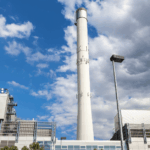Sustainable Waste Management
What is sustainable waste management? How do we manage waste more sustainably? Start with the proposition that managing waste, water, and energy more efficiently are core components of sustainability. Using material resources efficiently to cut down on the amount of waste produced, and where waste is generated, dealing with it in a way that actively contributes to the economic, social, and environmental goals of sustainability are good for everyone. Waste comes in various forms and is generally categorized according to the sector – residential, commercial, healthcare, industrial. Depending on the country’s legislation and waste category, frequently used waste disposal systems include burning at open dumpsites, landfilling, or incineration (with or without energy recovery). However, with growing global consciousness of the effect of waste on our environment, countries around the world are prioritizing waste reduction, reuse, or recycling over disposal whenever possible. In other words, preference is given to waste valorization (i.e., turning waste into a resource)
Waste recycling can take on many forms depending on the degree of complexity, from simple mechanical or physical modification to thermochemical modification. Thermochemical processes used for waste valorization include various sub-classes of pyrolysis (slow, intermediate, or fast pyrolysis) and gasification. In each of these processes, variations in processing parameters such as temperature, pressure, heating rate, and residence time convert waste to solid, liquid, and gaseous products in different proportions. These waste valorization strategies face some challenges, however, ranging from cost and technical complexities to the production of a new set of products that require further treatment. An expert in waste valorization is capable of assessing the suitability of waste matter, processing routes, and equipment to ensure that sustainable waste valorization is achieved. As waste is understandably lower in value than its unused/’virgin’ counterpart, the waste valorization expert works with clients to identify the most cost-effective processing route to follow whilst keeping sight of countries’ waste legislation. The waste valorization expert also focuses on the best recyclate end markets to target based on global recyclate prices.
With over 150 experts worldwide, LEC Partners has experts in many specific clean and renewable areas, including anaerobic digestion, fermentation, biomass, conversion technologies for things like tires and railroad ties, organic synthesis, fuel additives, ethanol gas, biodiesel fuel including algae biofuels, solid-state and industrial fermentation, green energy grants, ag-biotech, agricultural waste, alcohol fuels, alternative proteins and animal-free products, sustainable foods, beverage fermentation, biocatalysis, biodiesel conversion, biogas production, biomass power, carbon intensity, co2 utilization, combined heat & power, Fischer-Tropsch technology, food waste, hydrothermal carbonization, industrial enzymes, landfill management, microbial fermentation, organic synthesis, plastic pyrolysis, plastic recycling, plastic waste, pyrolysis oil, reactor design, renewable identification number, the Renewable Fuel Standard (rfs2), solid recovered fuels, torrefaction and torrefied biomass, waste to energy, and waste-to-hydrogen. This is a multidisciplinary group of green energy consultants that is a virtual “one-stop-shop” for any client need and handles projects of all types and sizes.
Look at our experts and the services we provide. Most of our experts are also available to advise and serve as expert witnesses in bioeconomy litigation matters. For the larger projects, we specialize in putting together full-service, interdisciplinary teams with one point of contact. See a video about LEC here. Call us at 1+ (501) 833-8511 or email us for more information.
.
Have some questions?
Not sure where to start?
Let's start a conversation. We're here to help you navigate
the bioeconomy with confidence.

